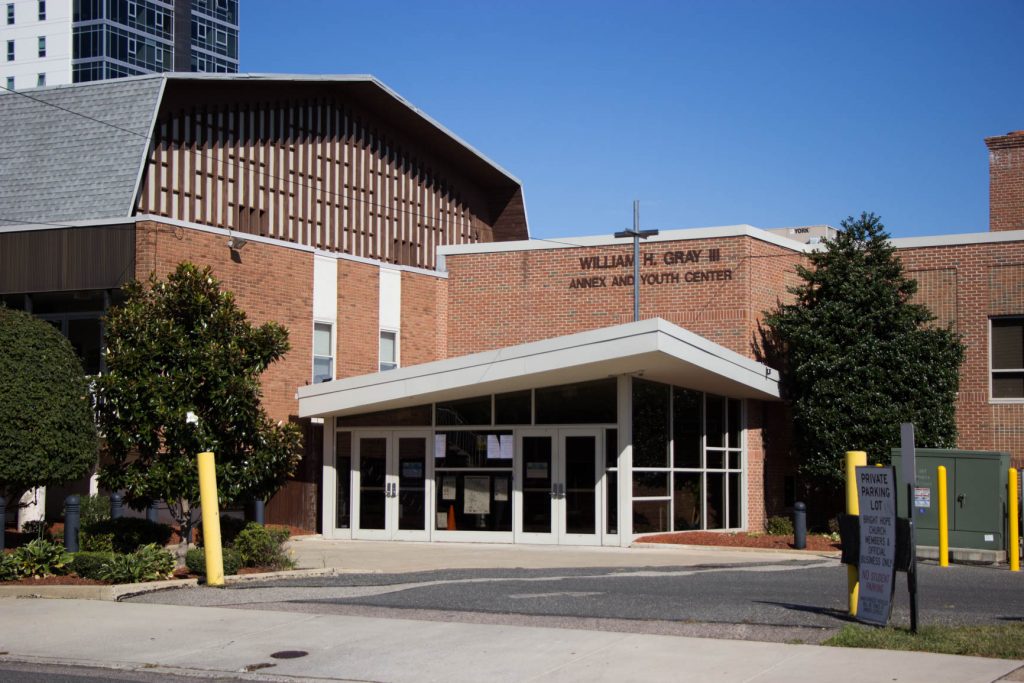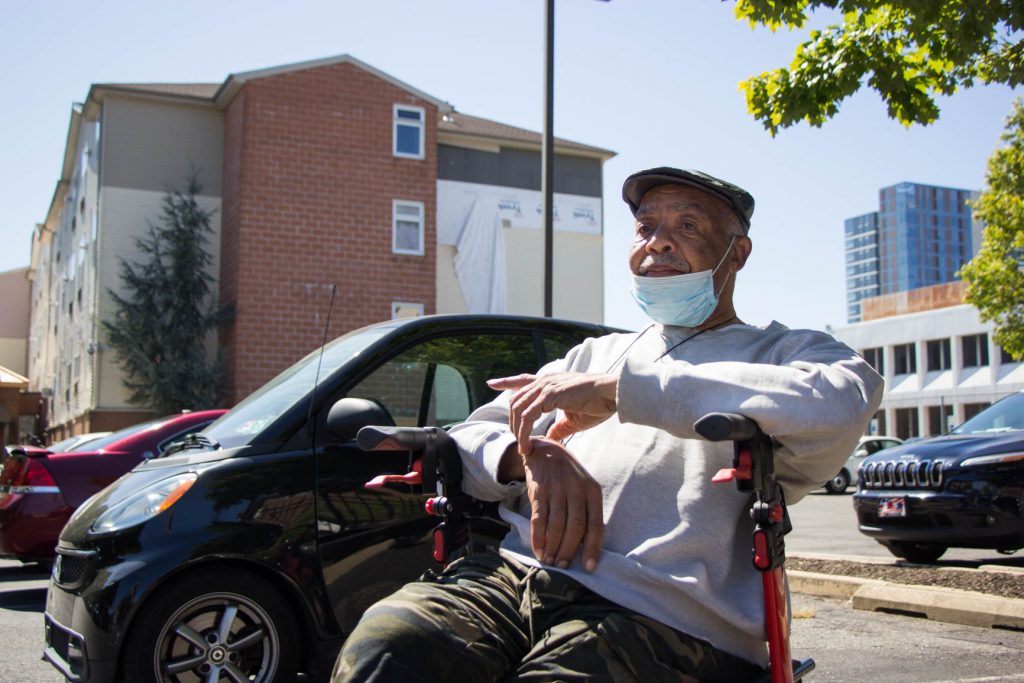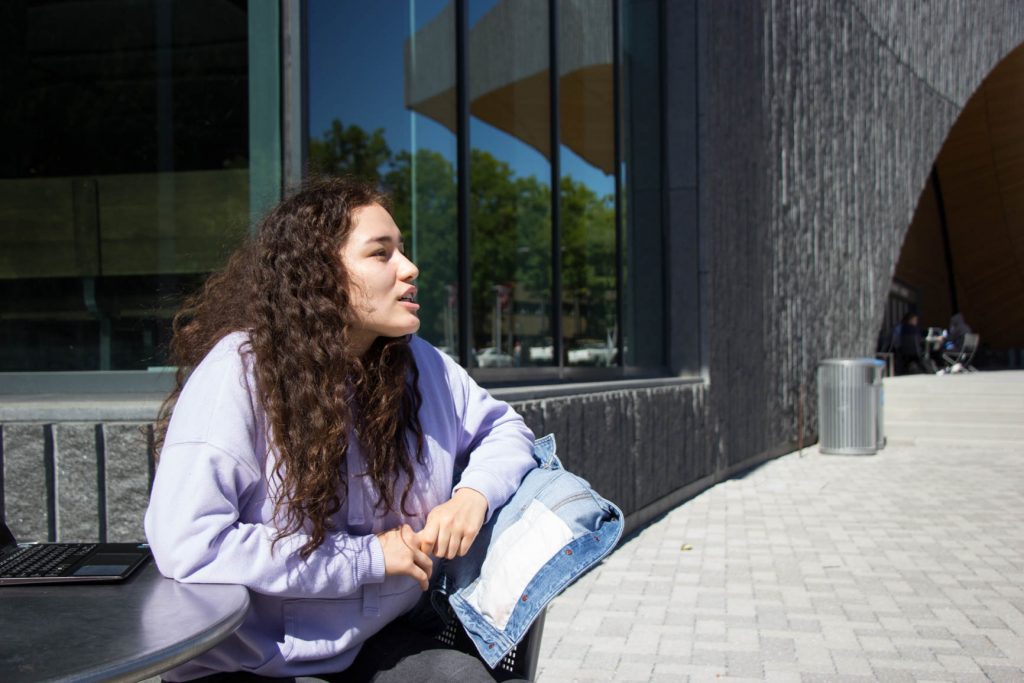For 102 days, Vanessa Cassidy battled COVID-19 in the hospital this summer.
But that will not stop Cassidy, 67, who lives on 11th Street near Oxford, from serving as an Election Day committee person at her polling location at Bright Hope Baptist Church on 12th Street near Cecil B. Moore Avenue.
“It’s extremely important to me and I don’t see staffing my polling place as any more risky than shopping at the supermarket, which I still do,” said Cassidy, who is experiencing nerve damage in her hands from COVID-19.
Election officials like Cassidy are in short supply this year. Six weeks before the Nov. 3 general election, Philadelphia is scrambling to find enough poll workers to staff voting locations across the city, said Patrick Christmas, policy director for the Committee of Seventy, a Philadelphia-based non-partisan organization focused on voting rights.
“The truth is, this election is coming at us like a train,” Christmas said.
Worker shortage
As of Sept. 17, the Office of the Philadelphia City Commissioners, which is tasked with conducting the election in Philadelphia, has only hired 4,500 of the 9,000 poll workers needed to ensure polling locations are fully staffed by Election Day, Christmas said.
COVID-19 is partially to blame for the shortage of election workers this year, said Noah Goldstein, an organizer with the Poll Workers Project, a grassroots initiative mobilizing young people to work at polling locations.
Nearly 60 percent of poll workers are over the age of 60 and are therefore more susceptible to the virus, he said. As a result, Goldstein expects an even more significant decrease in workers at polling locations across the city.
“Many of our older poll workers who may have volunteered for years at their local voting locations no longer feel comfortable exposing themselves to long lines and large masses of people,” said Goldstein.
Poll worker duties include arriving early to set up and arrange voting machines, checking voters in, controlling lines and managing other logistics, said Clair Adler, a second-year city and regional planning masters student who has volunteered the last four years as a poll worker in Northern Liberties.
“I’m usually out by around 9:30 p.m.” Adler said. “It’s a long day, but I find it rewarding and also consider it part of my civic duty.”
In 2016, it only took 8 people to staff a polling location and each poll worker was responsible for processing 89 votes on average, according to a report from the U.S. Election Assistance Commision.
“That might not seem like much,” Goldstein said. “But with only eight poll workers, that location could be able to process hundreds and even thousands of votes.”
To recruit more poll workers, the City Commissioners Office partnered with non-profit voting rights groups like Committee of Seventy and the Poll Workers Project to launch a campaign to recruit poll workers prior to Election Day, Christmas said.
The city also raised pay for poll workers to $200 a day, with another $50 available for those who attend a virtual training, according to the commissioner’s website.
While Adler is glad to see a potential influx of young poll workers, she also worries new sign-ups won’t receive the necessary training prior to Election Day.
“Pulling off Election Day isn’t easy, and there are always problems the day of the election that you can’t perceive or plan for,” Adler said.
A battleground state
President Donald Trump carried Pennsylvania by 57,588 votes in 2016, making it the first time a Republican had won the state since 1988, with voter turnout lower than usual in Philadelphia, Buzzfeed News reported.
The city saw stronger turnout in the 2018 midterm election with 52 percent of registered voters heading to the polls compared to the 40 percent average for midterm elections, the Philadelphia Tribune reported.
Turnout in Philadelphia, where Democrats outnumber Republicans 7 to 1, could be pivotal in this year’s presidential race, the Wall Street Journal reported.
Trump visited the city last week for a town hall with undecided voters and former Vice President Joe Biden has made Philadelphia his campaign headquarters.
In addition to the president, voters near Main Campus will cast ballots for the U.S. House of Representatives, state attorney general, auditor general, state treasurer, state senate and Pennsylvania House of Representatives, the Philadelphia Citizen reported. Residents will also vote on three citywide ballot questions.
Voters who live near Main Campus voted overwhelmingly Democratic in 2016. Nearly 90 percent of votes in the 20th Ward, which stretches between Susquehanna and Master streets and Broad and 6th streets, went to Hillary Clinton with less than 8 percent going to Donald Trump, according to the City Commissioners Office. In the 47th Ward, which stretches between Mongomery and Poplar streets and Broad and 25th streets, more than 90 percent of voters selected Clinton, while just over 5 percent selected Trump.
The 20th Ward will operate a polling station at Bright Hope Baptist Church, with two other locations in other wards nearby at George Washington Carver High School of Engineering and Science on Norris Street near 16th and Penrose Recreation Center on Susquehanna Avenue near 12th Street.

Mail-in voting
With Temple holding nearly all classes online and thousands of students leaving on-campus housing, Main Campus-area polling locations could see less students voting in person this year.
Another factor that could impact the number who show up to vote on Election Day is mail-in ballots.
To relieve stress on already overcrowded polling locations and reduce exposure to COVID-19, Pennsylvania is imploring residents to vote by mail, Christmas said.
Act 77, passed in 2019, broadened the scope of who is eligible to vote by mail by allowing “no excuse mail-in voting,” meaning state residents no longer need to prove extenuating circumstances to vote by mail, according to a press release by Gov. Tom Wolf.
On Sept. 17, the Pennsylvania Supreme Court passed legislation that will ensure all mail-in votes are counted if they arrive within three days following Election Day, the Philadelphia Inquirer reported. The court also ruled in favor of establishing secure drop-boxes where voters can deposit their ballots.
Election officials in Philadelphia are also set to vote on a plan this week to open 15 temporary satellite election offices, including one in Temple’s Liacouras Center, where voters could request, receive, fill out and submit their mail ballots, the Inquirer reported.
Robert Hines, 74, who lives at the Yorktown Arms Apartments at 13th Street near Jefferson, plans to vote by mail in the election. Hines, who uses a walker, said long lines are not something he can handle.
“It’s just much easier to send my vote by mail as opposed to all the complications of going to a polling place,” Hines added. “Also because I’m with other seniors, I’m wary of going to the polls and getting someone here sick.”

Some Temple students are also taking advantage of the mail-in process. Annette Ditolvo, a junior social work major, said she plans on sending in her ballot by mail even though she lives on Main Campus and is not far from Bright Hope Baptist Church.
“As opposed to crowding up my local polling station, I thought it would be better to just use the resources at my disposal to vote by mail,” Ditolvo said.
As of Sept. 17, nearly two million Pennsylvania residents had applied for mail in ballots, with that number expected to grow, NPR reported.
“Mail-in and absentee ballots need to be at your county election office by 5 p.m. on Tuesday, Oct. 27,” Christmas said. “It’s really important that voters know this deadline, and if they miss it, make sure they make a solid plan for voting in person.”
At the polls
Some residents and students in North Central are still planning on voting in person, like Akeem Dixon, 40, who lives on 18th Street near Girard.
“As someone who is not very high-risk, I still plan on voting in person,” Dixon said.
Despite expanded mail-in options and the ongoing pandemic, Philadelphia is still bracing for a large number of in-person voters, the Inquirer reported.
“I’m a front-line worker at a grocery store,” said Ellie Susskind-Diaz, a junior criminal justice major planning on voting in-person at Bright Hope Baptist Church. “So I’m not extremely concerned about voting in person from a COVID perspective.”

Overcrowding at the polls proved an issue for polling centers around Main Campus in 2016. Temple students were still waiting to cast ballots for at least an hour after polls closed on Nov. 8 that year, the Washington Post reported.
Alison Hopkins, a 2019 strategic communications alumna waited in line for nearly four hours at Bright Hope Baptist Church in 2016.
“Honestly, I was just thankful to be able to cast my vote. If I had work that day, I would have had to leave the line,” said Hopkins.
Renee McNair, 20th Ward leader who lives on Dondill Place near Jefferson, is confident that the three voting locations within the ward will be sufficient for in-person voters.
“We have made some tweaks since the last election to better accommodate the larger amount of Temple students we have been seeing,” she added. “I know young people are often busier than older folks, but the more of them we sign-up to work, the smoother it will go.”
In the 2016 general election, the 20th Ward counted 5,194 votes, according to data from the Office of the Philadelphia City Commissioners.
McNair hopes to see an even higher turnout this November.
“It’s all about communication,” McNair said. “We have to come together as a community, both young and old to accomplish this. But I have no doubt that we will when Election Day comes.”